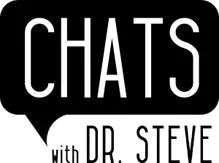Where’s Your Brain?

Where’s your brain? Do you operate out of your hippocampus or amygdala part of your brain when interacting with the world? Are you open minded or have you fallen into the trap of shutting others down from expressing their views and opinions?
Hard to believe its been over forty years ago that I decided to go off to college. Appalachian State University, deep in the mountains of NC, was chosen as my safe place for exploring career and lifestyle options as a then young adult.
My brain would be required to think for itself instead of just falling in line with a pre-described position determined by the government, church or others before me. Owning my brain and owning my own belief system was the rational for choosing ASU as my campus of higher learning.
I wanted to think for myself yet from a position of being exposed to the facts and the varying perspectives reasonably argued from varying angles, about the ramification of those facts. ASU was the open forum of tolerance and diversity I needed to develop into an open minded adult.
Students exposed to these types of campus settings become equipped for learning to “think for themselves” verses being “educated” that this is “the way” to see the world. For many state universities of that day, the concept of co-existence was stressed as an American strength that would heal some wrongs from the past. While also producing an open society for preventing errors of “group think” from whomever happens to currently sit in positions of political, economic or cultural power.
The concept of “university” goes back to the Greeks for emphasizing safety to explore possibilities and appreciation for diversity thereby creating the Greek culture of open minded citizens. As an open society free to debate and tolerate varying viewpoints, Athenians demonstrated to the world the benefits of ”university” type settings for allowing safe dialogue and exploration of possibilities.
Both individual liberties and the Greek nation as a whole prospered with tolerance being accepted as the norm and expectation from the people of that day.
The Greeks certainly didn’t understand the brain details behind their commitment to an open society. But they most certainly knew the advantages for individuals and therefore the larger group for the citizens of Athens to stay in the hippocampus part of their brains for interacting with others.
The hippocampus area of the brain allows people to hear other people’s perspectives. And to emotionally empathize with another person’s “sensitivity spots” and viewpoint based on the other person’s background and life experiences. This is where people connect for creating safe environments for individuals to support each other thereby creating mutually rewarding partnerships.
But if people are taught to operate from the amygdala (fight/flight) part of their brain, the pillars of any partnership (or nation?) become unstable for allowing true “co-existence” to occur.
Today’s college campus settings are moving away from safe exploration and debates to one of a “cancel culture” for silencing opposing “popular” views. With “politically correct” views being dictated by the students themselves. And from the prior training from pop culture and education these young folks have already been exposed to in their formative years.
The result is the silencing of varying perspectives that allows students and society’s to avoid group think and thus mistakes and abuses from people in power that “know what’s best for me”. The first amendment was established to prevent the “Lords of London” from happening again in the new world of North America.
On a personal level as a marriage and family therapist, recent society trends toward silencing opposition makes my work for helping people connect more difficult. If all people hear all day long is “silence or destroy” those different from you…then how are families or couples supposed to come together peacefully?
Much of effective parenting revolves around building the safe place and expectation youth will have different perspectives and feelings around a wide variety of issues. As young people get older, the secret of healthy parental guidance is creating safe boundaries and structures for “launching” young adults into the world.
Staying connected with young people forming their own opinion about the lifestyles they want to explore involves skills for staying in that hippocampus part of the brain. Staying connected and in a loving frame is a brain skill and gift for teaching young people they can be heard and respected for making healthy adult decisions. Disagreement and lively discussion is to be expected between the generations.
Helping children to understand they own their destiny is a vital lesson for assisting young adults to be responsible for the choices they make.
Knowing they can always come home to a safe harbour to rest or openly reflect on what they are experiencing out in the sometimes difficult world, allows young people to stay connected with us. That secure connection and validation from family and parents allows children to operate from a secure base. Thus decreasing their tendencies to be blown around by the current winds of the time for dictating their actions and decisions for handling complex issues.
Adult couples also need the safe attachment sense of security for knowing their significant partner always has their back. Even adult brains benefit from knowing they can disagree with their partner with the confidence no one will do the brain shift into the amygdala for triggering an all out war. Developing the skills to be “differentiated” yet connected is much of the work of couples therapy.
Watch your brain and if you are tending to operate much of your personal or community life out of the “fight/flight” part of your brain you may want some coaching for countering this society trend. Even the Greeks knew thousands of years ago that by staying open minded, creating safe debates and by establishing avenues of open philosophic dialogue... good things tend to happens for the citizens committed to this goal.
Even if society is currently in a “fight/flight” amygdala mindset, you don’t have to buy into operating from that alarmist point of view. Staying in the amygdala part of your brain produces symptoms associated with PTSD like uncontrolled anger, increased depression and more frequent anxiety. Adults with an overstimulated amygdala also have increased tendencies to engage in addictive activities like drugs, alcohol, porn, gambling, food disorders and sexual extremes.
Modern day adults are using all kinds of “unhealthy coping techniques” for self-medicating their brains due to never being taught healthy brain skills for dealing with stress.
The frequent tendency to withdraw from others is also a major indicator that some positive connection brain skill training is needed. If isolation is your only alternative to “fighting with others” than you need more skills then pulling away or numbing out through self destructive behaviors.
Good brain skills can be learned and refined for dealing with life’s stressors. Staying in the connecting hippocampus part of the your brain is a relationship skill the Greeks taught thousands of years ago. Isn’t it time we returned to a more tolerant culture and family life for interacting with others around us?











